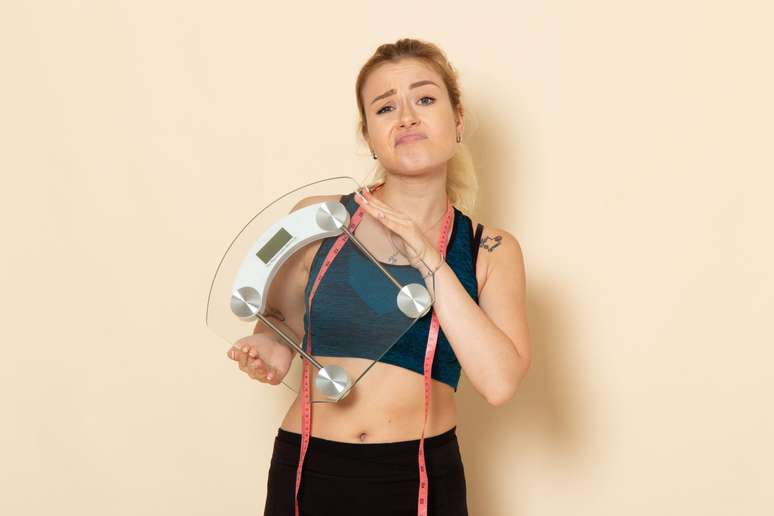The gynecologist explains that female aging and menopause have always been taboo, but there is no reason to fear them
At 48 years old, Maria Augusta Andrade feels her body changing. Hot flashes consumed her, insomnia haunted her, and mental confusion (constant episodes of forgetfulness) left her disoriented. Fear took over: she was the menopause, a ghost that she had never stopped facing.
Like many women, Maria was burdened by taboos and misinformation. Menopause was seen as the end of fertile life, the gateway to old age and disability. Without references or support, she found herself immersed in a sea of doubts and anxieties.
“I was afraid of becoming invisible, not only to society, but also to the job market”, confesses Maria. “Society teaches us that women only have value when they are young and fertile. And menopause seemed to be the end of that. I thought I was going to become an invalid.”
Today, at 52, Maria feels better than ever. After seeking professional help, she realized that menopause was not the end, but a new beginning.
“I started hormone replacement therapy (HT) and felt reinvigorated, it helped me a lot in treating my symptoms,” he says.
A phase like many others
According to Alexandra Ongaratto, gynecologist specializing in endocrine and climactera gynecology and technical director of the first Gynecological Clinical Center in Brazil, the GRIS Institute, menopause is a phase that should be treated like all the others in a woman’s experience.
“It is crucial to emphasize that this should not be seen as an insurmountable obstacle in women’s lives. Often, the fear of entering this moment in life is associated with the fear of feeling less capable,” she says.
However, the doctor points out that there are several treatment options and hormone therapies that can not only alleviate, but also eliminate the effects of menopause on a woman’s body.
What the research says
According to information presented by Silicon Valley Bank (SVB) in its 2023 annual “Innovation in Women’s Health” roundup, untreated menopause symptoms, including hot flashes, vaginal dryness, brain fog, insomnia and anxiety, have a substantial impact on the well-being and daily productivity of women.
With 20% of the U.S. workforce made up of menopausal women, the costs associated with lost productivity at work reach $1.8 billion annually, as reported by the Mayo Clinic (a nonprofit organization in the field of medical services and medical care). -US-based hospital research) in the SVB document.
Furthermore, the compilation shows that 73% of menopausal women do not seek help for their symptoms. However, Alexandra estimates that this number could be even higher in Brazil.
«Treatments are still a taboo in these parts, many people still consider them ‘frills’, when in reality the symptoms have a significant impact on women’s quality of life. Furthermore, due to costs, not all the population can access it,” she says.
Investments in women’s health
Also according to the 2023 “Innovation in Women’s Health” report, investments in women’s health have grown in recent years in the United States and Europe. However, among the areas, menopause occupies only the eighth position. Sectors related to fertility, pregnancy and reproductive health occupy the top positions, totaling $3.2 billion as of 2019. While menopause is valued at just $223 million.
The gynecologist highlights the inconsistency between Ibge data, according to which women spend more than a third of their lives in menopause, and the lack of financial incentives in the area, which has one of the lowest rates.
“This just shows insensitivity. We don’t look back on a significant period in so many people’s lives,” she says.
In Brazil, treatment through SUS can be a solution to the lack of investment in the area. The Commission on Human Rights (CDH) of the Federal Senate has approved a bill that provides treatment for menopausal and menopausal women through the SUS (Unified Health System). The initiative also establishes the National Awareness Week for women experiencing menopause or menopause.
The project, now subjected to analysis by the Social Affairs Commission (CAS), provides that the SUS must offer specific health services for women facing this transition period, using its network of public units or partners. Among the services are hormonal and non-hormonal drugs, SUS will now make available the main hormones approved for hormone replacement therapy, as well as alternatives for women with contraindications.
inspires transformation in the world of work, in business, in society. Compasso, a content and connection agency, is born.
Source: Terra
Ben Stock is a lifestyle journalist and author at Gossipify. He writes about topics such as health, wellness, travel, food and home decor. He provides practical advice and inspiration to improve well-being, keeps readers up to date with latest lifestyle news and trends, known for his engaging writing style, in-depth analysis and unique perspectives.






-t84500vauzw7.png)

